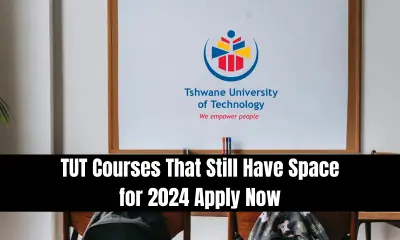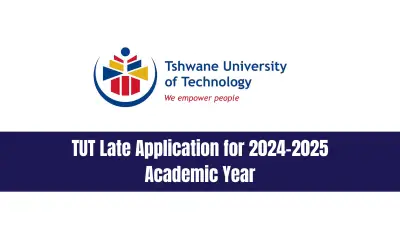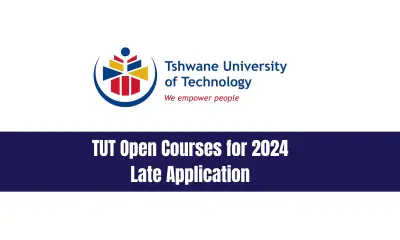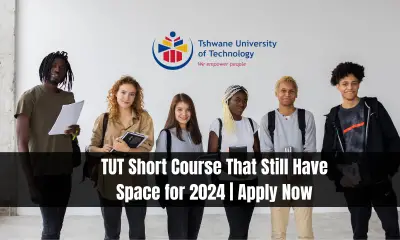TUT News
Groundbreaking Partnership Between King’s College London and Tshwane University of Technology
Published
1 week agoon
By
tut status
Revolutionizing Automotive Education: A Groundbreaking Partnership Between King’s College London and Tshwane University of Technology. In a significant academic collaboration funded by the Royal Academy of Engineering through the Higher Education Partnership in Sub-Saharan Africa (HEP SSA), Dr. Tabbi Wilberforce Awotwe from King’s College London has joined hands with Tshwane University of Technology (TUT) to revolutionize the automotive sector through project-based learning aimed at producing industry-ready graduates.
Groundbreaking Partnership Between King’s College London and Tshwane University of Technology
The initiative aims to bridge the gap between academia and industry by providing students with unique opportunities to learn from distinguished academics and gain valuable insights into the latest trends and practices in the automotive industry.
This collaboration emphasizes the importance of project-based learning, where students engage in hands-on projects under the guidance of external partners such as King’s College London. As a result, students will be better equipped to meet the demands of the industry and emerge as industry-ready graduates.
The Importance of International Partnerships
The collaboration between King’s College London and TUT underscores the importance of international partnerships in enhancing the academic experience and preparing students for successful careers in engineering.
The Dean of the Faculty of Engineering and the Built Environment at TUT, Dr. Grace Mukondeleli Kanakana-Katumba, highlighted the lasting impact of this project on students’ learning journeys. She noted that the initiative would “contribute to the development of a skilled workforce ready to tackle the challenges of the modern engineering landscape.”
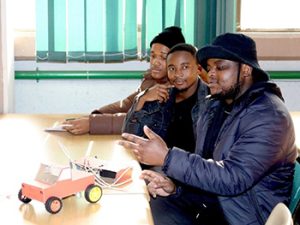
Students’ Innovations and Achievements
Dr. Tabbi Wilberforce Awotwe praised the students for their innovation and willingness to step out of their comfort zones in developing various automotive miniature cars.
He encouraged them to view this achievement as a stepping stone into their future careers in design and manufacturing. Dr. Awotwe also acknowledged the efforts of the academic team, led by Rouxzeta Van der Merwe from the TUT Department of Mechanical and Mechatronic Engineering, for their dedication to the project.
The Impact of Project-Based Learning
Rouxzeta Van der Merwe expressed her excitement about the progress her students have made through the adoption of project-based learning as a teaching philosophy.
She noted the passion exhibited by the students and how their engagement in this project deviated from the norm, showcasing their commitment and enthusiasm. Van der Merwe also thanked all partners for the exposure and learning opportunities provided to her and her students.
Collaborative Efforts Across Institutions
The project has garnered support from various collaborators, including Durban University of Technology, University of South Africa, Cape Peninsula University of Technology (CPUT), Aston University, and the University of Warwick. This broad network of institutions further enhances the project’s impact and provides students with a diverse range of perspectives and expertise.
Conclusion
This collaboration between King’s College London and Tshwane University of Technology marks a significant advancement in automotive education. Emphasizing project-based learning and international partnerships, the initiative equips students with practical skills and industry insights.
The support from various institutions further enriches the educational experience, ensuring graduates are well-prepared for the engineering challenges of the future. This project exemplifies the transformative potential of collaborative efforts in higher education, fostering a skilled and industry-ready workforce. See Further Detail On Official Site.

TUT FM Celebrating 30 Years of Student Driven Radio and Community Engagement

TUT Alumnus Appointed President Of PRISA

TUT Honors Late Student Activist Matikweni For Fight Academic Exclusion

TUT Employment Application Form 2024

Masterclass with Renowned Interior Design Experts Inspires TUT Students

Buttons & Bows Celebration of Vintage Xhosa Textiles and Artefacts

Groundbreaking Partnership Between King’s College London and Tshwane University of Technology

TUT Part-Time Lecturer in Dental Technology (X4)

TUT 2025 Prospectus Tshwane University of Technology

TUT Students Register Now and secure your NSFAS Allowance

TUT Granted Hemp Permits on Cultivation and Commercialisation

TUT Partners with NYDA on Work Integrated Learning Project

TUT Courses That Still Have Space for 2024 Apply Now

TUT Late Application for 2024-2025 Academic Year

TUT Open Courses for 2024 Late Application

TUT Requirements for Teaching for 2024 Apply Now

TUT Short Course That Still Have Space for 2024 Apply Now

Which Diploma Courses are Still Available at TUT

TUT Bridging Courses 2023/2024, Tshwane University of Technology
TUT Online Application Fee 2023/2024

Which Courses are Available for Late Application at TUT?

TUT ITs Login Tshwane University of Technology

TUT Post Graduate Diploma Still Have Space for 2024

TUT Course List You Qualify for With Your Marks | Apply Now
Trending
-

 TUT News1 week ago
TUT News1 week agoTUT Courses That Still Have Space for 2024 Apply Now
-

 TUT News1 week ago
TUT News1 week agoTUT Late Application for 2024-2025 Academic Year
-

 TUT News1 week ago
TUT News1 week agoTUT Open Courses for 2024 Late Application
-

 TUT1 week ago
TUT1 week agoTUT Requirements for Teaching for 2024 Apply Now
-

 TUT Blog1 week ago
TUT Blog1 week agoTUT Short Course That Still Have Space for 2024 Apply Now
-

 TUT Blog1 week ago
TUT Blog1 week agoWhich Diploma Courses are Still Available at TUT
-

 TUT Blog7 months ago
TUT Blog7 months agoTUT Bridging Courses 2023/2024, Tshwane University of Technology
-
TUT Blog7 months ago
TUT Online Application Fee 2023/2024

